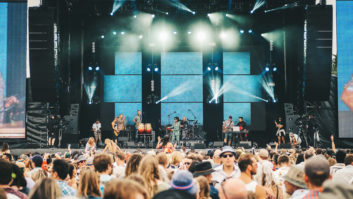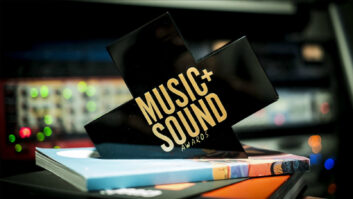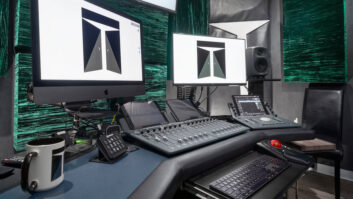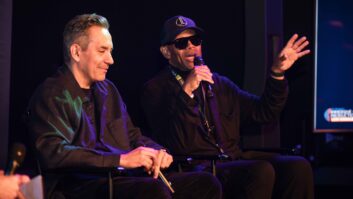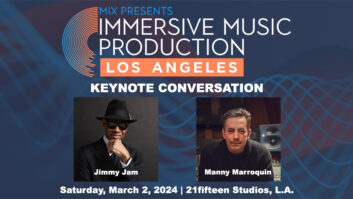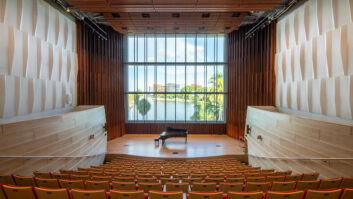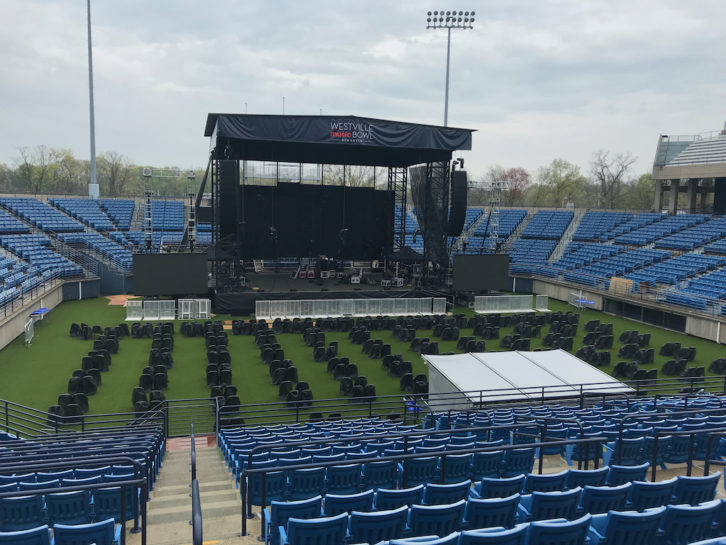
New Haven, CT (July 20, 2021)—Originally built in 1991, the Connecticut Tennis Center made its name hosting the annual Connecticut Open for nearly 30 years, until the event was discontinued in 2019—a move that placed the venue’s future in doubt. However, leadership at local non-profit New Haven Center for Performing Arts (NHCPA) sensed an opportunity.
“A couple of phone calls later, here we are,” says Keith Mahler of Premier Concerts/Manic Presents, the facility management company that runs the newly rechristened Westville Music Bowl on behalf of NHCPA.
Reinventing a 10,000-capacity tennis stadium for concerts isn’t as simple as putting up a new sign, however. “It was a massive electric and tech overhaul,” says Mahler. “The power was already there, because you need massive light towers to light up a tennis stadium; a lot of the tournament’s tennis was played at night. While there was massive power in the building, we still had to retrofit, come up with new distribution and so on.”
Today, a lot of that power goes to a truss-and-tower stage at one end of the venue, powering lights and a d&b audiotechnik J-Series PA installed by DNR Laboratories of Watertown, CT. As the first North American install under d&b’s certified pro-owned program, the system includes J8s, J12s, Y8s, Ti10Ps and a number of SL-GSubs. “The audio is actually fantastic in the building,” Mahler reports.
Tedeschi Trucks Band Rolls into Greenfield Lake Amphitheater
Kicking off its inaugural “Twilight Concerts Under the Stars” series on April 30, the Westville Music Bowl hosted Gov’t Mule for three nights, playing for sold-out, socially distanced crowds of 4,000. Ensuing concerts by acts like Goose, The Disco Biscuits, Twiddle, Joe Russo’s Almost Dead, Dinosaur, Jr. and others have followed suit, playing for their shows’ originally announced capacities, even if the possibility of further ticketing was possible.
“Everything was planned to be socially distant, so that’s how they’re selling,” says Mahler. “The artists didn’t want to change those configurations and start dealing with any types of issues, so while we’ve relaxed the social distancing rules in accordance with regulations, we have not changed the seating configurations. As we offer new shows, they’ll be done in different configurations as allowed.”
With the opening season taking off and garnering support from the local community, the long wait to reopen as a music venue was worth it, says Mahler: “It was a lot of paint, a lot of caulking, and we rebuilt all the concessions, too. It was a giant refurbishment to convert to a concert venue, but the seating is the best of the business. There’s not a bad seat in the house because it’s built so that everyone can view the middle of a tennis court; you look just slightly to the east and bang, the stage is right there. It may have been built 30 years ago, but as we like to say, since only the tournament played there, the place hasn’t been used even a year in total.”
